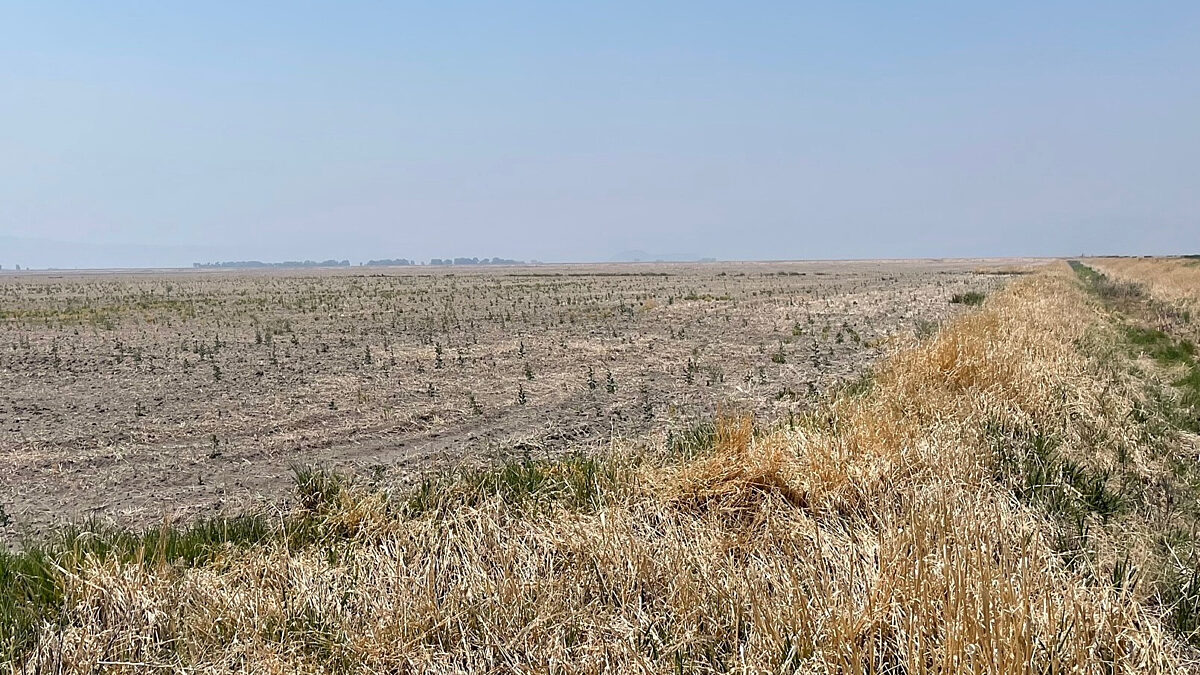Many Farmers, Ranchers Struggling to Hold on Through Drought
TOPICS
DroughtZippy Duvall
President

photo credit: Jason Flowers, Used with Permission
Zippy Duvall
President
Mother Nature can be a tough business partner. Storms can come in an instant, undoing months—or even years—of hard work and planning. But it’s not just the sudden, sweeping natural disasters that are devastating. Sometimes Mother Nature is slow and unforgiving. This is something our friends out West know all too well as they face another year of intense drought—a drought that is dragging on and edging eastward.
Nearly 70% of the U.S. is facing abnormally dry conditions, or worse, according to the latest reports. For some areas, folks are praying for summer rain, while others will do their best to hold on in hopes of more snowfall this winter. But a heartbreaking number are facing tough decisions already, from selling off herds to plowing under withered crops. The American Farm Bureau recently surveyed members from 15 states across the West, Southwest, Northern Plains and Midwest to assess on-the-ground impact. It’s clear from the responses that many farmers and ranchers are struggling to hang on as water sources continue to deplete.
Nearly 70% of the U.S. is facing abnormally dry conditions, or worse, according to the latest reports.
Less water means less agricultural production from a region that produces a sizable share of our food supply. Through careful stewardship and hard work, farmers and ranchers across areas facing persistent, severe drought produce more than 80% of fruits, nuts and vegetables, more than 80% of wheat, more than 50% of dairy, and more than 70% of beef for our nation. The impact of the drought could place added strains on the supply chain and overall economy as American jobs and food security depend on this region.
According to our survey, most farmers in the regions impacted expect water allocations to be cut in half, which means crops and livestock production will be down significantly as well. Farmers and ranchers are making cuts on top of cuts from last year. Among ranchers who already reduced their herds in 2021, half will be selling off more this year to get by. Crops are down too, with 37% of farmers surveyed saying they had to plow under crops because of a lack of water—that’s up from 24% of farmers last year. Orchards are also being pulled up, with 33% of farmers reporting the destruction of permanent crops, like fruit and nut trees, as prevalent in their area due to lack of water.
It's a bleak picture in the heat of a very dry summer, but farmers are not without hope. I met with Farm Bureau leaders across the West just last week and heard stories of the challenges and tough decisions Western farmers and ranchers are facing. There is no doubt that folks are hurting, but they also are committed to hanging on as long as they can. And I have seen the innovation and grit of farmers and ranchers out West firsthand as I’ve toured watermelon fields in Arizona, produce farms in California and orchards in Oregon and Washington. Like farmers and ranchers across the country, they put their heart and soul into feeding their communities, nation and world.
Agriculture is often the first to be questioned about water use, especially when water is scarce, but farmers are acutely aware of how precious this resource is. We are careful to use every drop. Innovation and advanced irrigation systems have helped agriculture reduce water use (by up to 40%). But even the latest technology cannot eliminate the basic need for water to grow food.
So, what’s to be done in these tough times? Well, we can pray for more rain and snow to fall from the sky, and we do. But we also need to be better prepared to capture and deliver the rainwater when it comes. That’s why Farm Bureau supported the national investment in Western water infrastructure. The Bipartisan Infrastructure Framework passed and signed into law last year includes funding for broader water infrastructure across the U.S. and for the West specifically. It’s important that these funds are put to work where they are needed most.
No, we cannot make water fall from the sky, but we can make improvements for the future and find ways to help farmers and ranchers hold on for better days.
Zippy Duvall
President
Vincent “Zippy” Duvall, a poultry, cattle and hay producer from Greene County, Georgia, is the 12th president of the American Farm Bureau Federation.
Trending Topics
VIEW ALL